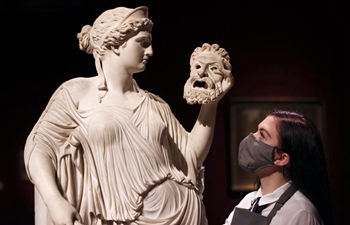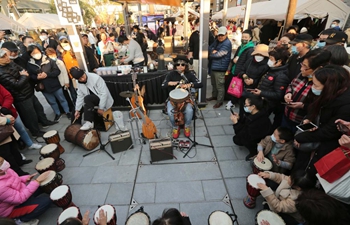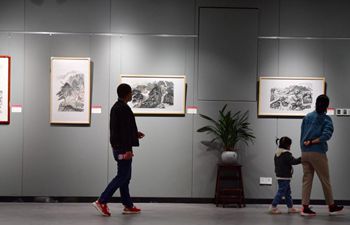NICOSIA, March 10 (Xinhua) -- Cyprus dramatically enhanced its measures aimed at preventing the spread of the COVID-19 after the first three confirmed cases were announced on Monday and Tuesday, a government statement said.
The statement, issued after a lengthy meeting of the Council of Ministers under President Nicos Anastasiades, listed several measures, including the closure of public and private schools in the district of Nicosia and football games being held behind closed doors.
Anastasiades himself canceled on Tuesday a state visit to Austria.
The statement said that the Council of Ministers decided to extend, until its next meeting on March 18, the closure of crossing points along the buffer zone which is under the control of a UN peace keeping force, dividing the Greek- and Turkish-Cypriot communities.
It also banned meetings of over 75 people and cancel all mass gatherings, musical events and parades in public places, with any one violating these decisions treated as committing a criminal offence.
The Council of Ministers empowered the issuing of daily directives under the contagious diseases law and the Minister of Finance to issue a circular regarding work in the public service.
The wide-ranging measures came as a 64-year-old government doctor, who is head of the cardiovascular department of the main hospital in Nicosia, had failed to notify the health services that he was infected by the virus since he returned from Britain on March 3, and only did so on March 8.
The University of Cyprus, where the doctor worked as a teacher of the medical school, was closed down until March 25.
In the span of five days the doctor was said to have come into contact with an unspecified, but very large number of people, whom authorities are still trying to track down.
The Health Ministry announced that all 152 people who came into contact with the doctor and were tracked down, tested negative for the virus.
The Nicosia General Hospital was closed and quarantined for at least two days for sanitization and patients were being gradually discharged or taken to private hospitals.
Further measures included issuing instructions to travelers from some Asian and European countries hit by the epidemic, who will need to stay in quarantine for 14 days.
In the Turkish-controlled part of Cyprus, where a German woman aged 63, who arrived on Sunday with a group of 30 German tourists, tested positive for the virus, three hotels were quarantined and several school sclosed down until further notice.
Authorities also advised people not to visit the Greek part of Cyprus.











